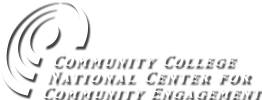Book Review: The Measure of Service Learning: Research Scales to Assess Student Experiences
By Robert G. Bringle, Mindy A. Phillips and Michael Hudson
American Psychological Association, 2004
‘The Measure of Service Learning: Research Scales to Assess Student Experiences’ is presented as a resource for measuring key aspects of student development in service learning courses in order to improve the utilization of service learning and deepen the understanding of service learning practitioners and program evaluators about the value of service learning. As stated convincingly by the authors ‘systematically collecting information positions educators to make informed decisions that can improve their craft, enhance their understanding about why certain outcomes were achieved and increase the confidence with which they represent their work to others, including colleagues and the general public’ (pg. 11). The authors of this 230-page text proceed to offer innovative tools to make this possible including tools for furthering general research in service learning with the goal of establishing its strengthens and identifying areas for improvement. In addition to their usefulness in pushing forward general research, it has been recently reported that the utilization of assessment measures during a service learning course is valuable for focusing and expanding students’ reflective thinking and for assessing student achievement of learning objectives (Ash et al., 2005). As this text focuses on the use of research scales for assessment of learning, the authors dedicate an entire chapter (Chapter 2) to the discussion of research and measurement theory, particularly as they pertain to the use of research scales.
‘The Measure of Service Learning’ contains many measures for assessing student outcomes, including mastery of discipline-specific subject mater. Such assessment measures are of great importance as it has been recognized that ‘convincing evidence of the importance of service learning to subject matter learning is still lacking’ (Giles and Eyler, 1998, pg. 67). These authors also acknowledged that ‘one of the greatest challenges to researchers is to identify and measure appropriate learning outcomes that service learning might be uniquely designed to affect’ (Giles and Eyler, 1998, pg. 67). In this regard, ‘The Measure of Service Learning’ is a timely text that offers defined tools for assessing the impact of service learning on course learning outcomes.
‘The Measure of Service Learning’ offers a variety of research scales designed to measure different aspects of student development in service learning environments including motives and values, moral development, self and self-concept, student development, attitudes, and critical thinking. Specific research scales are present for each of these broad areas in separate chapters.
References
Ash, S.L., Clayton, P.H., and Atkinson, M.P. (2005). Integrating reflection and assessment to capture and improve student learning. Michigan Journal of Community Service Learning, 11, 49-60.
Giles, D.E. and Eyler J. (1998). A service learning research agenda for the next five years. New Directions for Teaching and Learning, 73, 65-72.
About the Reviewer:
Dr. Beronda Montgomery conducted graduate studies in Plant Biology at the University of California, Davis and postdoctoral studies at Indiana University. She also completed postgraduate studies in several areas of the scholarship of teaching and learning, including alternative teaching and assessment methods, collaborative research endeavors, and service-learning instruction. Dr. Montgomery uses service-learning in her courses and studies the impact of service-learning pedagogy on student learning and civic engagement in the life sciences. These studies have culminated in a number of national presentations and peer-reviewed publications. Dr. Montgomery is currently an Assistant Professor of Biochemistry and Molecular Biology at Michigan State University. You can reach Dr. Montegomery at: Dr. Beronda Montgomery, Assistant Professor, Department of Biochemistry and Molecular Biology, Michigan State University, 322 Plant Biology Building, East Lansing, MI 48824-1312; email: [email protected]


